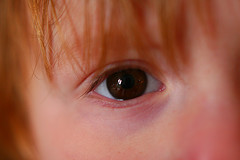 Polk County Sheriff Grady Judd is on the hot seat facing accusations that children held in his county’s adult jail have been consistently subjected to abuse, neglect and violence.
Polk County Sheriff Grady Judd is on the hot seat facing accusations that children held in his county’s adult jail have been consistently subjected to abuse, neglect and violence.
The Southern Poverty Law Center (SLPC) filed a class action lawsuit against Judd (Case Number 8:12-cv-00568-SDM-MAP, filed in the United States District Court Middle District of Florida/ Tampa Division) that describes brutal treatment and condition in the jail. Among the disturbing allegations are incidents such as:
- Draconian punishment for even minor infractions of the rules. One example cited was spraying them with harsh chemicals for taking too long to get dressed.
- Incidents of both physical and verbal abuse by guards. One noted example was a a guard twisting a teenager’s arm behind his back and threatening to break it.
- Failure to provide adequate educational services.
- Failure to provide adequate rehabilitative services.
That is an amazing array of negatives, particularly since the facility has only been housing children for six months, since October of 2011. Why are they doing so? Because of SB 2112, passed by Florida lawmakers last Spring. SB 2112 allows counties to place children as young as eight years old in adult jails, and they have.
Three quarters of the the youth arrested in Polk Country are brought in for minor infractions – misdemeanors and probation violations mostly – yet over 100 children are incarcerated there under the supervision of guards that have no expertise or training on how to work with children.
So far Polk is the only county in Florida that detains youth charged as juveniles under adult jail standards rather than Department of Juvenile Justice (DJJ) standards. The situation there reflects the damage that SB 2112 has done in basically reversing over 40 years of work creating protections for children that adult jails cannot provide.
It’s almost as though Sheriff Judd wants to breed more crime and criminals, a view the SPLC website seems to agree with me on:
Decades of research shows that exposing children to adult jails leads to more crime, not less. Based on this research, states around the country have passed legislation prohibiting the placement of children in adult jails. Florida legislators bucked this promising trend when they passed a law that could funnel more children into adult jails throughout the state of Florida.
‘The abuse suffered by the children of Polk County should serve as a cautionary tale for counties throughout the state of Florida that are considering housing children in adult jails.’ Galloni said. ‘This lawsuit demonstrates that incarcerating children in adult jails is bad public policy that inflicts incalculable harm on children, results in negative public safety outcomes and exposes taxpayers to tremendous legal liability.’
We will be following this story closely, and will hopefully be bringing you a few interviews with some of the folks behind the SPLC lawsuit in the near future.

 An oft recurring theme on the HUMAN
An oft recurring theme on the HUMAN







